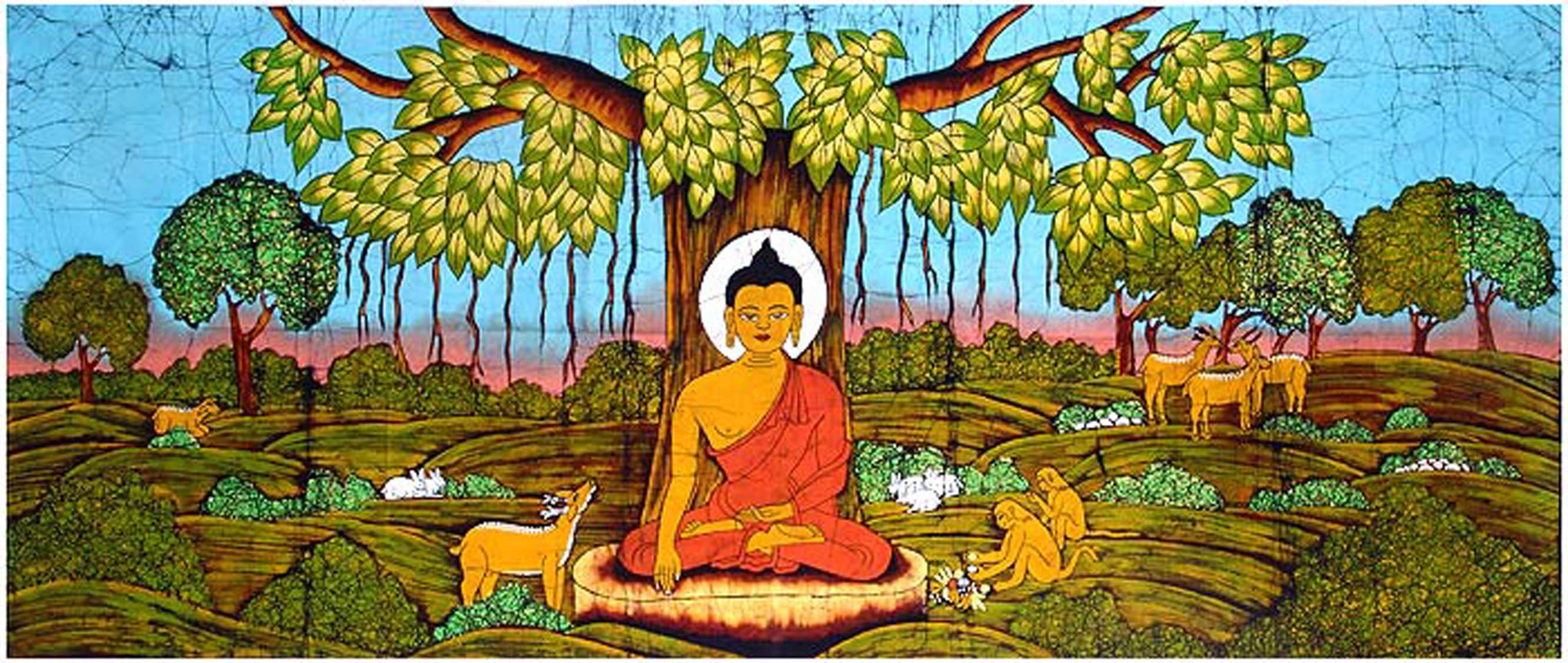Enlightenment
Nirvana is a Sanskrit word that literally means ‘blown out’. In Indian religions, this is the achievement of moksha, or liberation from reincarnation. Nirvana refers to the extreme silence of the mind after one has tempered the fires of desire, aversion, and delusion. It is most commonly associated with Buddhism, though Hinduism and Jainism use the concept in association with their versions of enlightenment. Overall, the three agree that it is a release from Karma.
Jainism
In Jainism, Moksha and nirvana are interchangeable. Moksha is release from karma. The Gautama explains it as a safe place without old age, sickness, death, or disease. It is safe, happy, quiet, difficult to reach, but those who reach it are free from sorrows, and have put an end to the stream of existence, reaching complete peace.
Buddhism shares very similar views to those of the other indian religions. The Buddhists call it perfect peace, when all cravings are eliminated. When the forces of raga(attachment), dvesha(aversion), and moha/avidya(ignorance) come to an end, so does dukkha(suffering).
Hinduism
Hinduism‘s views of nirvana are a bit different, many apparently consider nirvana to be a buddhist term, though there are some that say that from the Bhagavad Gita onwards the term has been linked with Brahman, the absolute principle from the Upanishads and the Vedic traditions. The religion occasionally uses nirvana in place of Moksha. Moksha infers liberation, meaning to be set free of bonds. The nirvana of the Gita directly contradicts buddhism in that a person attains egolessness and unison with the Brahman, rather than perfect stillness.
Nirvana Across Traditions
Buddhism has differing approaches to the enlightenment of the buddha, Mahayana Buddhists believe in Dharmakaya saying that the buddha was born to benefit humanity and is one aspect of the buddha while Theravada Buddhists believe the buddha achieved libertation through human efforts. The Dhammakaya movements in Thailand and India view the true self of the buddha as being present in all beings.
Nirvana is death in much of the buddhist traditions. It is the ultimate freedom of life and most Buddhists consider it to be the aim of life. The buddha teaches the way.

